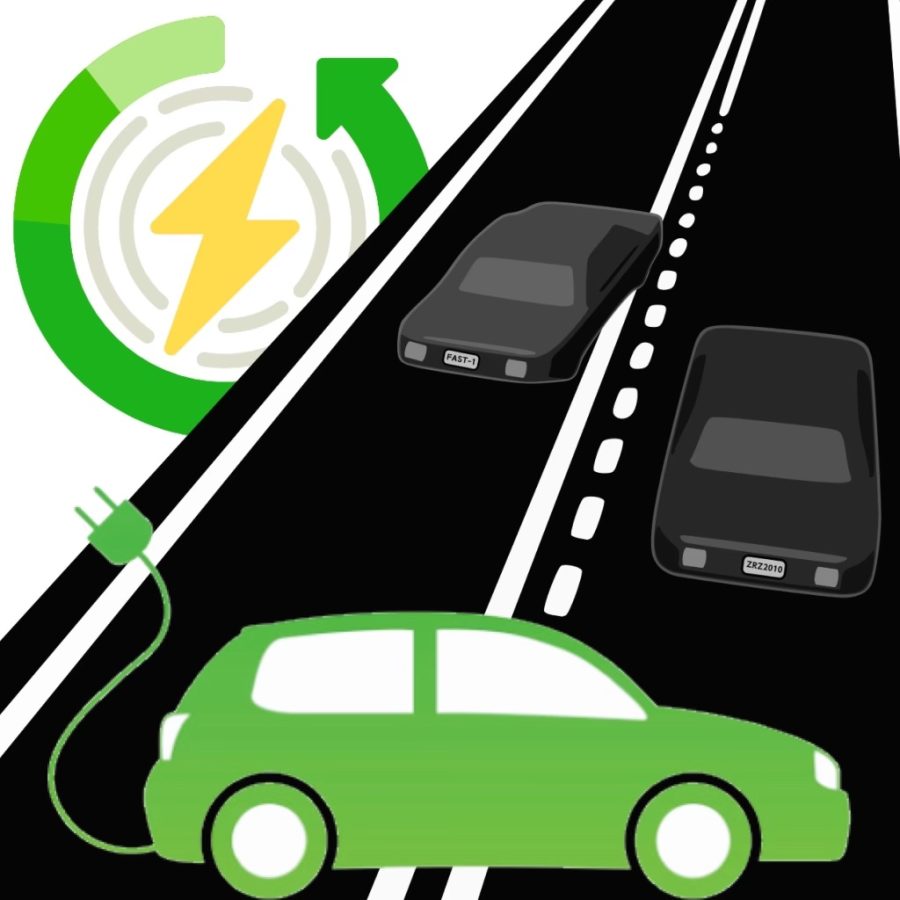California gas vehicle ban to start in 2035
California has approved the decision to ban the sale of gas-powered cars, which is set to take effect by 2035. On Aug. 25, air regulators voted in favor of shifting to the increased use of alternative energy vehicles in order to lessen the effects of climate change.
The regulation will put a stop to the production of new gas-powered vehicles and require new vehicles to be electric or hydrogen-powered. As transportation is the largest source of greenhouse gas emissions in America, regulators are hopeful that transitioning to alternative energy sources will decrease global warming.
According to the Environmental Protection Agency, a regular passenger vehicle emits around 4.6 metric tons of carbon dioxide yearly, and every gallon of gas burned creates over 8,000 grams of carbon dioxide. Such amounts worsen pollution and have caused lawmakers to re-evaluate current environmental regulations.
Senior Natali Garcia appreciates the benefits of the future regulations and has had an overall positive experience with driving a more environmentally friendly vehicle.
“It’s pretty convenient,” said Garcia. “I drive my Prius to stop carbon emissions […] since it’s [partially] electric.”
However, the new regulations bring up the issue of strain on California’s power grid. During the recent heat wave, days after the ban was announced, the state’s grid operator urged Californians to conserve energy by limiting vehicle charging because of widespread power usage due to excessive heat. In addition, electric vehicles do not represent a perfect solution because they run on electricity largely produced by fossil fuels, which release carbon dioxide when burned.
CHS Chemistry and Environmental Science teacher, Dr. Deborah Bennett, has numerous concerns regarding climate change, including potential fires, water shortages and extinctions of plants and animals. Bennett supports the ban but emphasizes the importance of infrastructure.
“We’ve got to have better ways of making that electricity,” said Bennett. “We have to be able to store the electricity, and we have to be able to transport the electricity.”
Senior Kira Selzer, the owner of a gas-powered Volvo, acknowledges benefits of the new regulations but also considers potential issues.
“I’m someone who loves gas-powered cars and the way they sound and feel when driving,” said Selzer. “Many people will still be driving gas powered vehicles, […] so I don’t think [the regulation] will make a big enough impact.”
Despite concerns, California governor Gavin Newsom plans to lower the state’s reliance on fossil fuels and protect the health and safety of workers and communities through the regulation now in place.
Because California is the largest auto market in the US, other states are likely to follow California’s steps towards zero-emission cars in order to combat climate change.
Your donation will support the student journalists of Calabasas High School. Your contribution will allow us to purchase equipment and cover our annual website hosting costs.

Hi! My name is Sedona Kaye, and I’m the Perspectives Editor this year. I learned so much as a staff writer last year and can’t wait to learn more....












